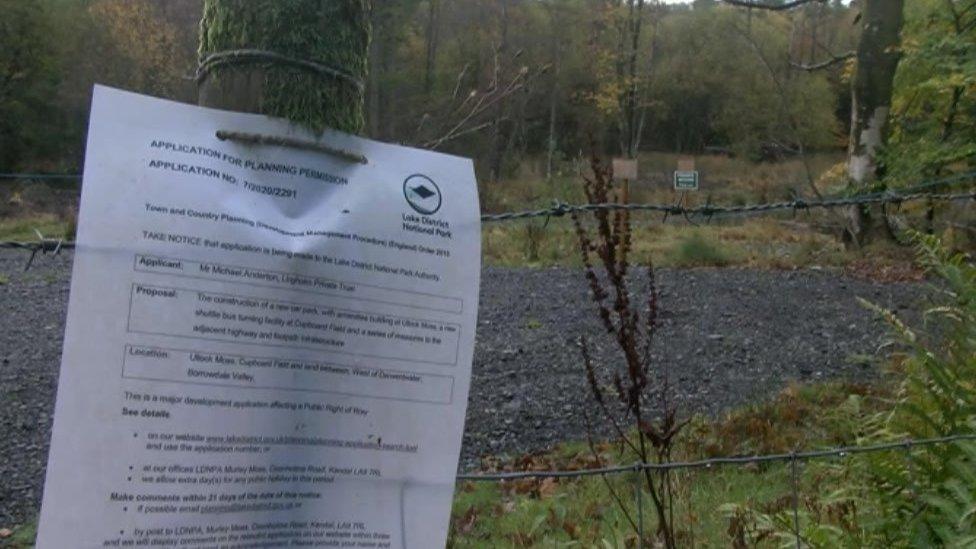Planners told to refuse 'divisive' fell car park
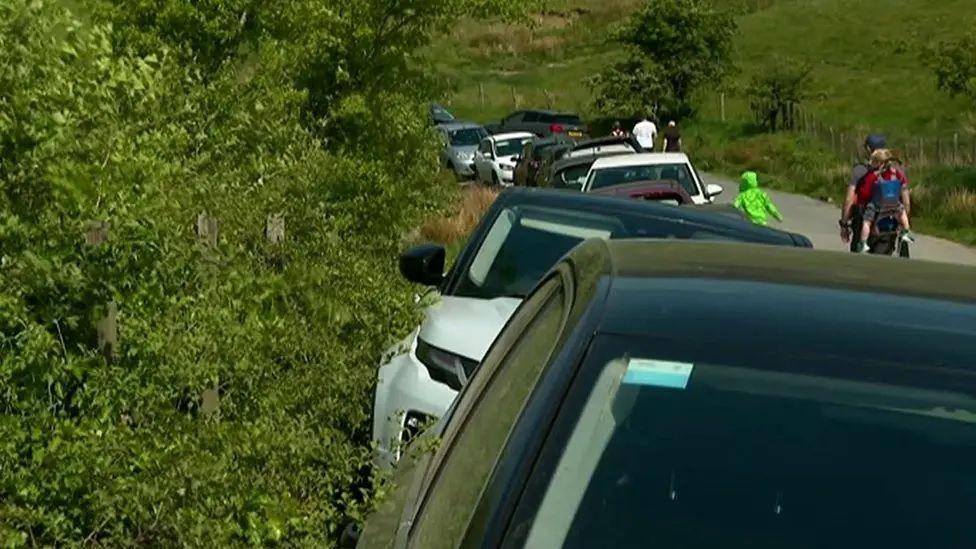
Poorly parked cars have caused problems in the past around parts of the Lake District
- Published
Planners have been advised to turn down a proposal for a new car park for visitors hiking up a popular fell.
Lingholm Private Trust wants to build the 150-car facility at Ullock Moss in Portinscale, near Keswick, for day trippers who will then be taken by shuttle bus to Catbells.
Plans would include felling trees at Ullock Moss to accommodate the facility and toilet block, and creating a turning circle at Cupboard Field, at the foot of the fell.
A report prepared ahead of Wednesday's planning meeting of the Lake District National Park Authority (LDNPA), said the project had divided opinions in the community, with 248 letters of objection and 272 in support.
Planning officers at the LDNPA recommended the proposal be refused, because it would "cause harm" to the area and not resolve long-standing issues with inconsiderate parking at Catbells.
Objectors, which include Above Derwent Parish Council and charities Friends of the Lake District, the National Trust and the Woodland Trust, are concerned about the car park's impact on residents and the environment, and fear it would increase traffic from Portinscale to the A66.
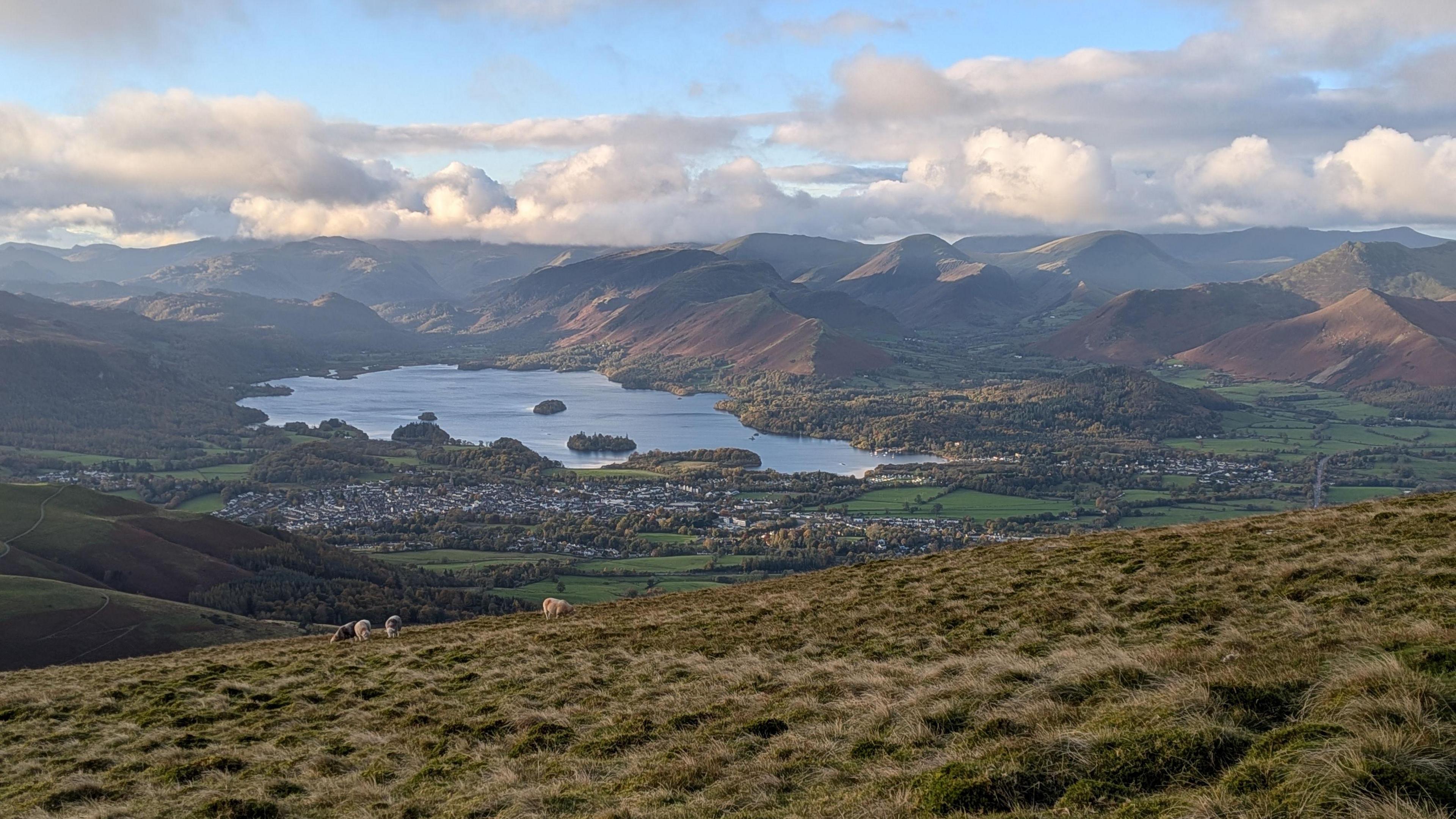
Catbells is a popular fell a short distance from Keswick
Supporters of the plan said the car park was a sustainable proposal, would improve road safety and address some of the issues with congestion caused by cars parked on the road.
Lingholm Private Trust said inconsiderate parking around Catbells meant the road was often reduced to one lane, with emergency vehicles and buses "finding great difficulty" accessing the area.
"Together with the unsightly and stressful impact of the vehicle congestion, it all ultimately contributes to degrading the beauty and tranquillity of this special area," the trust said.
The National Trust said the proposal was "simply in the wrong place" and traffic needed to be "pulled back completely" from going to Portinscale.
"The traffic already backs up at the junction onto the A66 and the introduction of spaces for an additional 150 vehicles will simply exacerbate that problem," it said.
Similar plans had already been turned down by the LDNPA in 2021 and a further application was withdrawn before a decision could be made in 2022.
The parish council had supported the initial plans, but objected to the latest proposal.
It said since double yellow line restrictions had been implemented in the area, traffic problems had eased and there had been no reports of vehicles, including emergency services, struggling to get through.
The stretch of road from Portinscale to Catbells has had the highest annual number of penalty charge notices across Cumberland, planning documents showed.
Figures obtained by the trust revealed the number had more than doubled from 628 in 2021, before the double yellow lines were implemented, to 1,362 in 2024.
The LDNPA said the number of parking charge notices may have increased because there had been more enforcement action and parking restrictions had been introduced.
The parish council said: "We remain convinced that an agile policy to disperse and not attract additional traffic into the National Park seems much more appropriate."
Follow BBC Cumbria on X, external, Facebook, external, Nextdoor and Instagram, external.
Get in touch
Do you have a story suggestion for BBC Cumbria?
Related topics
Related stories
- Published23 October 2024
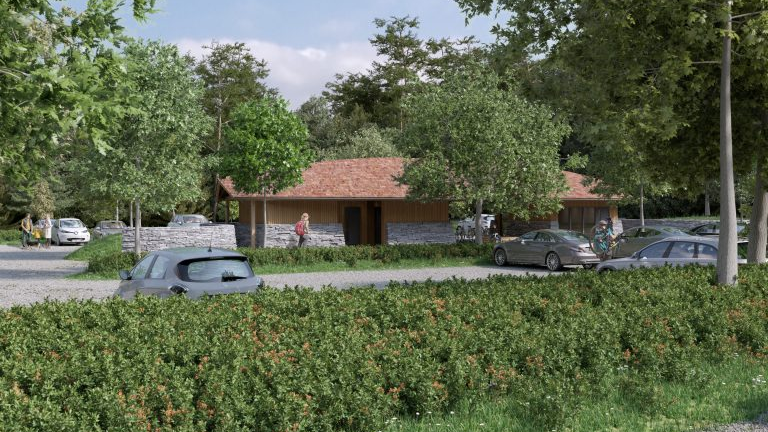
- Published15 August
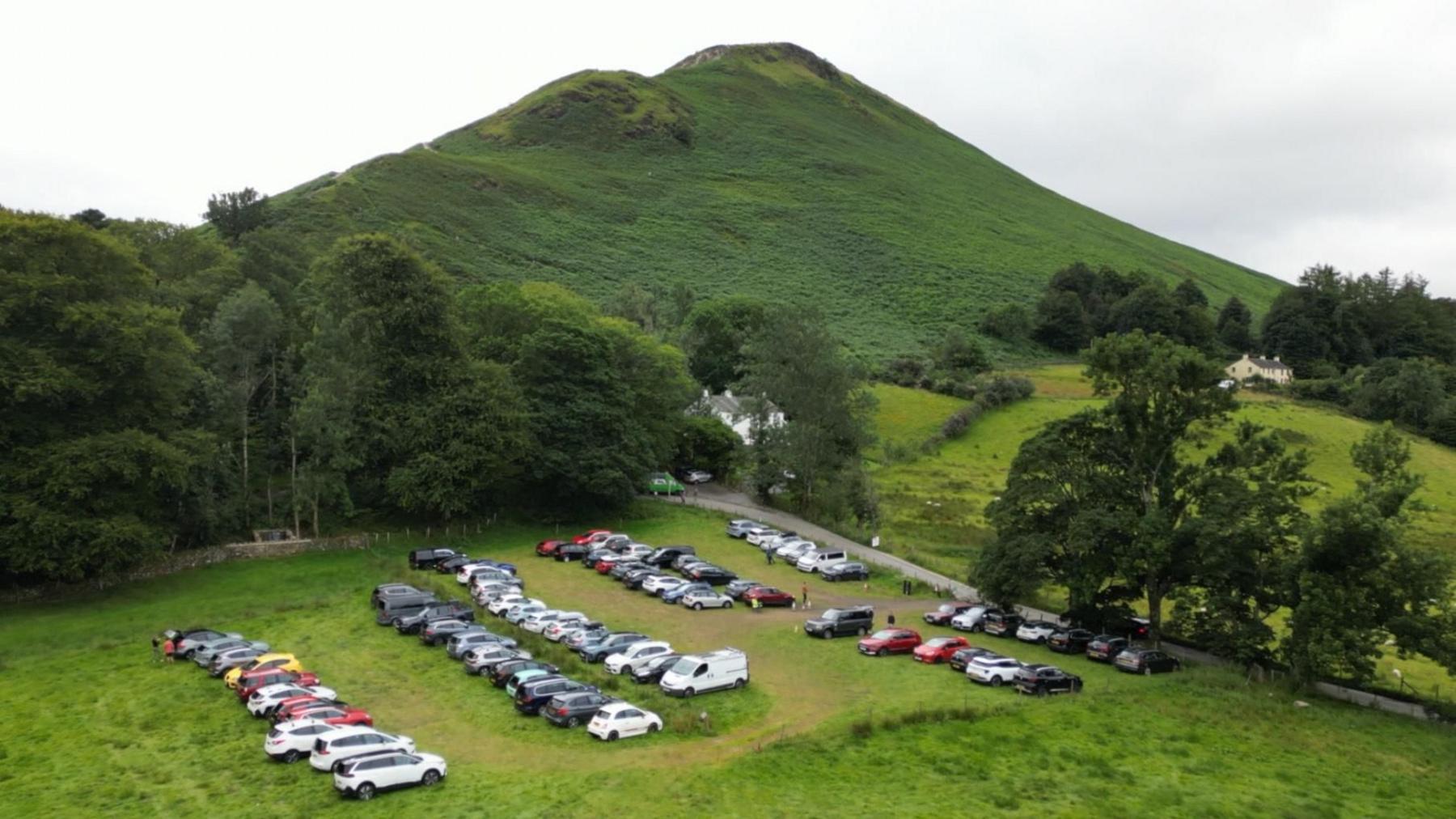
- Published4 November 2021
